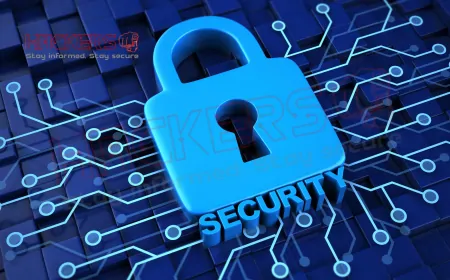What Career Opportunities Open Up After CEH Certification?
In today's digital world, where cyber threats lurk around every corner, the demand for skilled professionals who can protect sensitive information has skyrocketed. Imagine being the hero who uncovers vulnerabilities before the bad guys do that's the essence of ethical hacking. The Certified Ethical Hacker (CEH) certification, offered by EC-Council, equips you with the tools and knowledge to think like a hacker but act like a guardian. It's not just a piece of paper; it's a gateway to exciting career paths in cybersecurity. If you're someone who's always been fascinated by technology, puzzles, or even detective stories, CEH might be your perfect fit. This certification teaches you how to identify weaknesses in systems, networks, and applications through legal and ethical means. But what happens after you pass the exam? That's where the real adventure begins. From entry-level roles to high-stakes positions in top industries, CEH opens doors you might not have even known existed. In this blog post, we'll explore the various career opportunities that become available once you earn your CEH. We'll break it down step by step, from understanding what CEH is all about to diving into specific jobs, industries, and even salary expectations. Whether you're a beginner dipping your toes into cybersecurity or a seasoned IT pro looking to level up, this guide is designed to be straightforward and inspiring. Let's embark on this journey together and see how CEH can transform your professional life.

Table of Contents
- What is CEH Certification?
- Why Pursue CEH for Your Career?
- Entry-Level Career Opportunities
- Mid-Level Career Opportunities
- Advanced Career Opportunities
- Industries Hiring CEH Certified Professionals
- Skills Enhanced by CEH and How They Boost Careers
- Salary Expectations: A Comparative Table
- How to Get Started with CEH and Beyond
- Conclusion
- FAQs
What is CEH Certification?
The Certified Ethical Hacker (CEH) certification is a globally recognized credential that validates your ability to find and fix security vulnerabilities in computer systems. Created by the International Council of E-Commerce Consultants (EC-Council), it focuses on ethical hacking techniquesessentially, using the same methods as malicious hackers but with permission and for good purposes.
To earn CEH, you need to pass a rigorous exam that covers topics like reconnaissance, scanning networks, enumeration, vulnerability analysis, system hacking, malware threats, and more. The latest version, CEH v13, includes hands-on labs and real-world scenarios to ensure you're not just theoretically sound but practically skilled.
Why does this matter for careers? In a world where data breaches cost companies millions, organizations need pros who can proactively defend against attacks. CEH isn't just for hackers; it's for anyone interested in cybersecurity. It sets you apart by showing employers you understand the hacker mindset, which is crucial for building robust defenses.
Many people start with CEH after basic IT experience or even as freshers with a passion for tech. It's accessible, with training options online or in classrooms, and the certification is valid for three years, encouraging ongoing learning through continuing education credits.
Overall, CEH is more than a certification it's a foundation that can launch you into a dynamic field where every day brings new challenges and opportunities to make a real impact.
Why Pursue CEH for Your Career?
Pursuing CEH can be a game-changer for your professional growth. First off, it boosts your credibility. Employers trust CEH because it's ANSI-accredited and recognized worldwide, meaning your skills are validated by industry standards.
One major benefit is the career advancement it offers. With CEH, you're not limited to one role; it opens paths in various cybersecurity domains. You'll gain practical skills in tools like Nmap, Metasploit, and Wireshark, which are essential for real jobs.
Financially, it's rewarding. Studies show CEH holders often earn higher salaries due to the demand for ethical hacking expertise. Plus, it provides job security in a field projected to grow rapidly as cyber threats evolve.
CEH also fosters continuous learning. The certification requires renewal, keeping you updated with the latest trends like cloud security and IoT vulnerabilities. This adaptability makes you more valuable to employers.
For beginners, CEH demystifies complex concepts, explaining jargon like "phishing" (tricking people into revealing info) or "SQL injection" (exploiting database flaws) in simple terms. It's a stepping stone to advanced certs like CISSP or OSCP.
In essence, CEH isn't just about getting a job it's about building a fulfilling career where you contribute to safer digital environments.
Entry-Level Career Opportunities
Starting out in cybersecurity with CEH? Great choice! Entry-level roles are plentiful and allow you to apply your new skills right away.
- Security Analyst: You'll monitor networks for threats, analyze alerts, and report findings. It's like being a digital watchdog.
- Junior Penetration Tester: Test systems for weaknesses by simulating attacks. CEH provides the basics to start here.
- Vulnerability Assessor: Scan for potential risks in software and hardware, recommending fixes.
- IT Security Technician: Support daily security operations, like firewall management and user training.
- Cybersecurity Support Specialist: Help with incident response and basic forensics.
These roles often require little experience, valuing your certification and enthusiasm. Many companies offer on-the-job training, so don't worry if you're new. With CEH, you can land positions in small firms or government agencies, building a portfolio for future advancements.
Tip: Network on LinkedIn and join communities like Reddit's r/netsec to find openings. Entry-level salaries typically range from $60,000 to $90,000, depending on location.
Mid-Level Career Opportunities
Once you've gained a couple of years' experience, CEH can propel you into mid-level roles with more responsibility and better pay.
- Ethical Hacker/Penetration Tester: Conduct full-scale tests on organizations' defenses, reporting vulnerabilities.
- Security Engineer: Design and implement security systems, like intrusion detection tools.
- Information Security Analyst: Develop policies to protect data and ensure compliance with regulations.
- Forensic Investigator: Analyze breaches to understand what happened and prevent recurrences.
- Security Consultant: Advise clients on best practices, often freelancing or with consulting firms.
These positions involve teamwork, problem-solving, and sometimes travel. CEH's hands-on focus prepares you well, and combining it with experience can lead to roles in larger corporations.
Mid-level pros often earn $90,000 to $120,000 annually. Focus on building soft skills like communication to excel here.
Advanced Career Opportunities
For those with extensive experience, CEH serves as a launchpad to leadership roles in cybersecurity.
- Chief Information Security Officer (CISO): Oversee an organization's entire security strategy.
- Security Architect: Design complex security frameworks for enterprises.
- Cybersecurity Manager: Lead teams in threat management and policy enforcement.
- Incident Response Manager: Coordinate responses to major cyber incidents.
- Researcher/Trainer: Develop new tools or teach CEH courses.
These roles require strategic thinking and often additional certs. CEH's foundation in ethical hacking gives you an edge in understanding threats deeply.
Salaries can exceed $150,000, with opportunities in global firms. Advanced careers offer influence, like shaping industry standards.
Industries Hiring CEH Certified Professionals
CEH opens doors across diverse sectors, each facing unique cyber challenges.
- Financial Services: Banks need protection against fraud and data theft.
- Government and Defense: Secure classified info from state-sponsored attacks.
- Healthcare: Safeguard patient records under regulations like HIPAA.
- E-commerce and Retail: Prevent breaches in online transactions.
- Technology and IT: Innovate secure software and cloud services.
- Telecommunications: Protect networks carrying vast data.
- Manufacturing: Defend against industrial espionage and IoT threats.
These industries value CEH for its practical approach. Demand is high in tech hubs like Silicon Valley or emerging markets in Asia.
No matter your interest finance, health, or tech CEH aligns with roles that match your passion.
Skills Enhanced by CEH and How They Boost Careers
CEH sharpens key skills that employers crave, directly impacting your career trajectory.
- Technical Proficiency: Master hacking tools and techniques, making you adept at threat detection.
- Analytical Thinking: Learn to dissect systems for vulnerabilities, crucial for problem-solving.
- Ethical Mindset: Understand legal boundaries, building trust with employers.
- Risk Assessment: Evaluate and prioritize threats, aiding strategic decisions.
- Communication: Report findings clearly, essential for team collaboration.
These skills not only help in daily tasks but also in advancing to managerial roles. For instance, analytical prowess can lead to consulting gigs.
By enhancing these, CEH ensures you're versatile, ready for evolving cyber landscapes.
Salary Expectations: A Comparative Table
Salaries for CEH holders vary by role, experience, and location. Here's a table based on 2025 data for U.S. averages.
| Job Title | Average Annual Salary (USD) | Key Responsibilities |
|---|---|---|
| Security Analyst | $95,000 | Monitor threats, analyze data |
| Penetration Tester | $112,000 | Simulate attacks, report vulnerabilities |
| Security Engineer | $118,000 | Design security systems |
| Security Consultant | $120,000 | Advise on best practices |
| CISO | $160,000+ | Oversee security strategy |
Note: These figures are approximates; actual pay can be higher in high-cost areas.
How to Get Started with CEH and Beyond
Ready to pursue CEH? Start with eligibility: You need two years of IT experience or complete official training.
- Enroll in Training: Choose EC-Council accredited courses, online or in-person.
- Study Diligently: Use books, practice exams, and labs.
- Pass the Exam: 125 questions in four hours.
- Build Experience: Volunteer for bug bounties or CTFs.
- Network: Attend conferences like Black Hat.
After CEH, consider advanced certs for further growth.
Conclusion
Earning your CEH certification is like unlocking a treasure chest of career possibilities in cybersecurity. From entry-level analyst roles to becoming a CISO, the opportunities are vast and rewarding. We've explored how CEH enhances skills, boosts salaries, and fits into diverse industries facing ever-growing threats.
Remember, the key is continuous learning and hands-on practice. Whether you're just starting or advancing, CEH provides a solid foundation. If cybersecurity excites you, take that first step—your future self will thank you. Stay safe in the digital world!
What is CEH Certification?
CEH stands for Certified Ethical Hacker, a credential that teaches you to identify and fix security vulnerabilities ethically. It's ideal for cybersecurity careers.
Is CEH Suitable for Beginners?
Yes, with basic IT knowledge, beginners can pursue CEH. It explains concepts simply and builds from the ground up.
What Jobs Can I Get Right After CEH?
Entry-level roles like security analyst or junior penetration tester are common, especially with some IT experience.
How Much Does CEH Certification Cost?
The exam costs around $1,199, plus training fees which vary from $500 to $3,000 depending on the provider.
Does CEH Require Prior Experience?
You need two years of work experience or official training to be eligible for the exam.
What is the Average Salary for CEH Holders?
Around $110,000 to $130,000 annually in the US, depending on role and location.
Can CEH Lead to Management Roles?
Yes, with experience, it can pave the way to positions like CISO or cybersecurity manager.
Is CEH Recognized Globally?
Absolutely, it's accepted worldwide and often required for ethical hacking jobs.
How Long is CEH Valid?
Three years, after which you renew through continuing education credits.
What Skills Does CEH Teach?
Skills like network scanning, vulnerability assessment, and ethical hacking tools usage.
Can I Get a Job with Just CEH?
It's possible for entry-level, but combining with experience or other certs helps.
Which Industries Value CEH Most?
Finance, healthcare, government, and tech sectors hire CEH pros frequently.
Is CEH Better Than Other Certs?
It depends on goals; CEH focuses on hacking, while others like CISSP are broader.
How to Prepare for CEH Exam?
Use official study materials, practice labs, and take mock tests.
Does CEH Include Hands-On Training?
Yes, especially in v13, with labs simulating real attacks.
Can CEH Help in Freelancing?
Definitely, many freelancers offer penetration testing services with CEH.
What is the Pass Rate for CEH?
Around 70-80% for prepared candidates, but it varies.
Is CEH Worth the Investment?
Yes, given the high demand and salary boost in cybersecurity.
Can CEH Be Done Online?
Training and the exam are available online for convenience.
What Comes After CEH?
Advanced certs like CEH Practical, OSCP, or CISSP for further growth.
What's Your Reaction?










































































